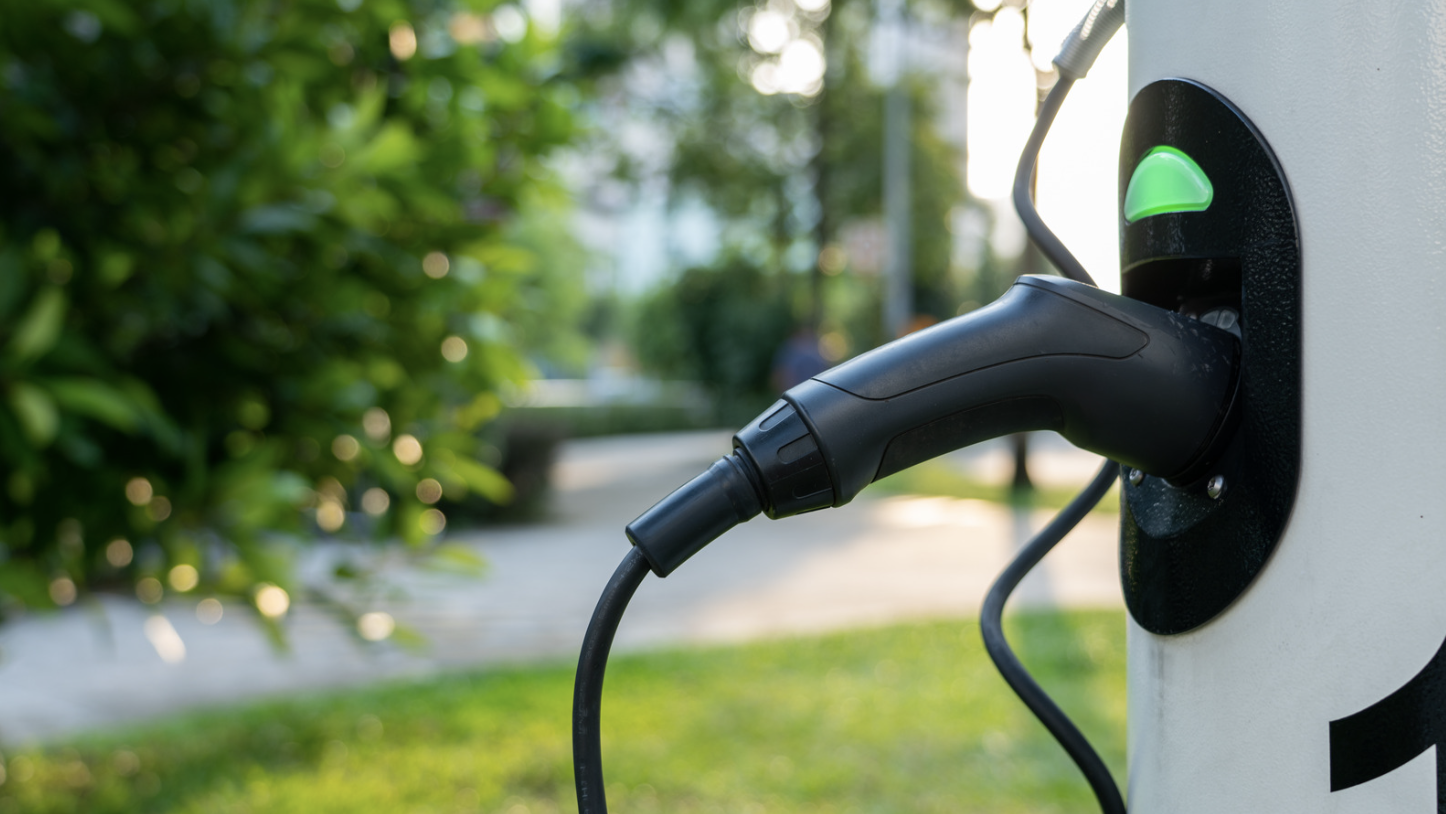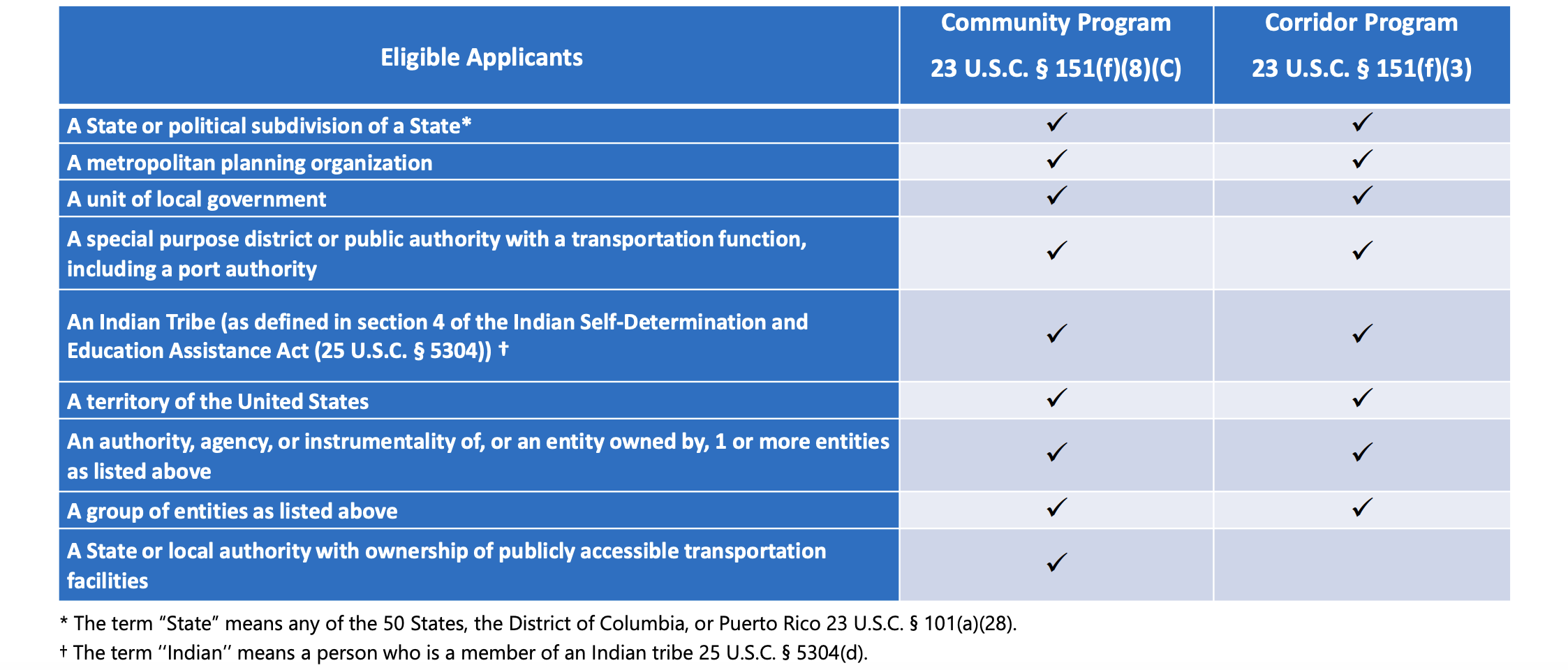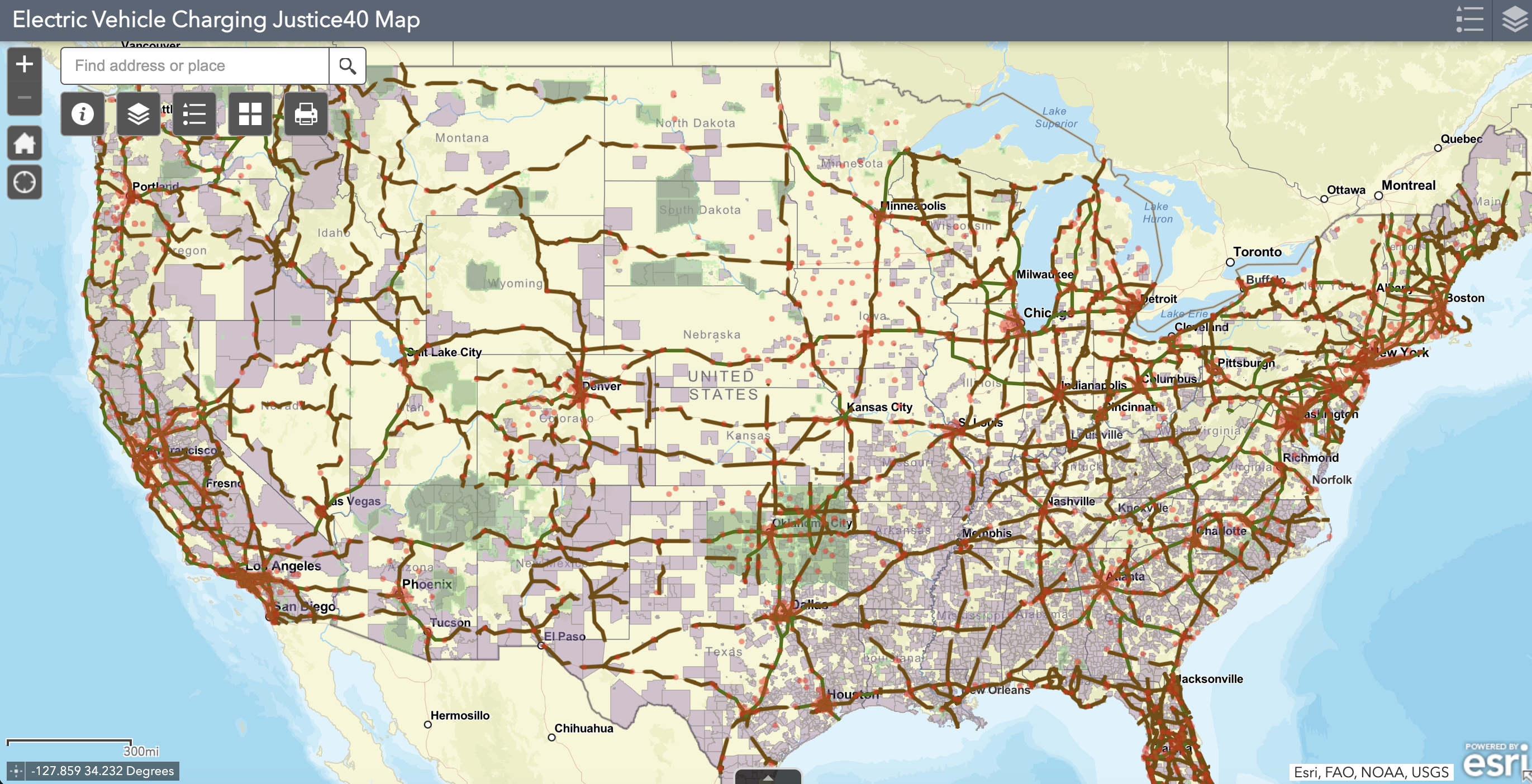The Bipartisan Infrastructure Bill included funding to build out our nation's electric vehicle charging stations. The Charging and Fueling Infrastructure Discretionary Grant Program is one component of that. A Notice of Funding Opportunity was released and is available for the first round of funding until May 30, 2023. Read on to learn more about the program and the two ways your community can increase EV charging infrastructure through the program.
Dory Larsen | April 20, 2023 | Clean Transportation, Electric Vehicles, ETS CollaborativeThe Charging and Fueling Infrastructure Discretionary Grant Program (CFI) is a complementary program to the National Electric Vehicle Infrastructure Program (NEVI). CFI aims to “accelerate an electrified and alternative fuel transportation system that is convenient, affordable, reliable, equitable, accessible, and safe.” It is part of the vision to reduce national greenhouse gas emissions by 50-52% by 2030 and set the U.S. on a path to a nationwide network of at least 500,000 EV chargers by 2030.

The CFI Program provides $2.5 billion in funding through two $1.25 billion discretionary grant programs:
- Corridor Charging Grant Program
- Community Charging Grant Program
CFI will be additive to the $5 billion in formula funding provided by the NEVI Program, increasing electric vehicle charging infrastructure in rural and urban under-resourced areas. The funding will be available until 2026 in annual tranches, and the current Notice of Funding Opportunity (NOFO) for fiscal years 2022 and 2023 is open until Tuesday, May 30, 2023.
Corridor Program
Like the NEVI Program, the Corridor Charging Grant Program (Corridor Program) grants are expected to support the strategic buildout of publicly accessible EV charging infrastructure (and alternative fueling) within a mile of an exit along designated Alternative Fuel Corridors (AFCs). The Program will fund $1.25 billion in projects through 2026. The anticipated minimum award is $1 million, and there is no maximum. There is $350 million available for the 2022-23 funding period.
Projects must contract with a private entity to acquire and install eligible infrastructure.
Community Program
The Community Charging Grant Program (Community Program) projects are expected to reduce greenhouse gas emissions and expand access to infrastructure. The Community Program will fund $1.25 billion in projects through 2026. The anticipated minimum award is $500,000, and the maximum is $15 million. There is $350 million available for the 2022-23 (current) funding period. Community Program grant recipients may use the funds for development phase activities, including planning, feasibility analysis, revenue forecasting, environmental review, preliminary engineering and design work, and other pre-construction activities. They may also use funds for the acquisition of real property and construction/reconstruction directly related to the project and the construction and installation of the infrastructure.
Projects may contract with a private entity to acquire, construct, install, maintain, or operate infrastructure. Additionally, funding for up to 5% of the grant amount awarded may be used for educational and community engagement activities.
CFI Program Requirements
Both programs require projects to be located on public roads or publicly accessible locations 24 hours a day, seven days a week, year-round. Both the Community and Corridor Programs have an 80% cost share, meaning awardees must match the remaining 20% of the project. Both of these programs are subject to these final standards and requirements intended to increase consumer confidence in electric vehicle charging with a reliable, predictable, safe, and secure experience. The merit criteria that apply to both programs include the following:
- Safety
- Climate Change, Resilience, and Sustainability
- Equity, Community Engagement, and Justice40
- Workforce Development, Job Quality, and Wealth Creation
- CFI Program Vision
The Justice40 Initiative, a whole-of-government approach to advancing environmental justice, applies to these Programs. The intent is that 40% of the overall benefits of investments flow to disadvantaged communities.
Eligible Applicants

Resources
The U.S. Department of Transportation Federal Highway Administration hosted a webinar detailing the CFI Program on March 22, 2023. The password to access the recording is: i#l2b6UV, and the slides from the webinar can be accessed here. The FHA presentation included tools that can be used to help applicants identify criteria required by the grant, including the Alternative Fuel Life-Cycle Environmental and Economic Transportation (AFLEET) CFI Emissions Tool from the Argonne National Lab) for the Corridor Program. And for both Programs: the DOT Transportation Disadvantaged Census Tracts Tool and the EV Charging Justice40 Map from the Argonne National Laboratory.

Key Takeaways
- Both the Community and Corridor Programs have an 80% cost share, meaning awardees must match the remaining 20% of the project.
- $700 million has been released for FY 2022 and 2023.
- Community Program:
- FY22/23 $350 million total
- Minimum anticipated award of $500,000
- Maximum anticipated award of $15 million
- Corridor Program:
- FY 22/23 $350 million total
- Minimum anticipated award of $1 million
- No maximum on award dollars
- The Programs are designed as reimbursable grants.
Apply Now for EV Charging Funding in Your Community
The funding to build a nationwide backbone of publicly available and accessible charging infrastructure through CFI and NEVI Programs is unprecedented. However, for these CFI Programs to be fully subscribed and infrastructure to be built, there is a considerable amount of preparation and coordination that still needs to occur. If your community is considering applying for funding, it is imperative that planning and community engagement begin now. To apply or learn more, visit the Notice of Funding Opportunity page for the Program, here.
Electrify the South is a Southern Alliance for Clean Energy program that leverages research, advocacy, and outreach to promote renewable energy and accelerate the equitable transition to electric transportation throughout the Southeast. Visit ElectrifytheSouth.org to learn more and connect with us.